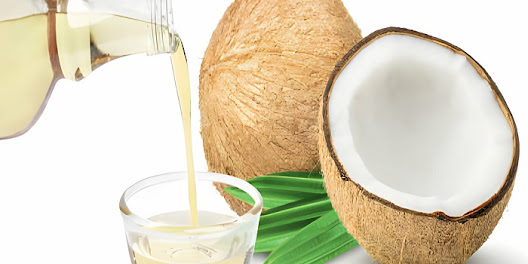Coconut oil has become a staple in many kitchens and beauty routines worldwide, known for its versatility and numerous health benefits. But did you know that not all coconut oils are created equal? There's a key difference between cold pressed coconut oil and regular coconut oil, and understanding this difference can help you make more informed choices for your health and well-being.
In this comprehensive guide, we'll delve into the nuances of organic cold pressed coconut oil and regular coconut oil, exploring their production processes, nutritional profiles, and potential uses. Whether you're a health enthusiast, a culinary aficionado, or simply curious about coconut oil, read on to discover the distinctions between these two popular variants.
What is Coconut Oil?
Before we dive into the specifics of cold pressed coconut oil versus regular coconut oil, let's first understand what coconut oil is. Coconut oil is extracted from the meat of mature coconuts, harvested from the coconut palm tree. It has been used for centuries in various cultures for cooking, skincare, haircare, and medicinal purposes.
Understanding Cold Pressed Coconut Oil
The Cold Pressing Process
Cold pressed coconut oil is produced through a method known as cold pressing or expeller pressing. In this process, fresh coconut meat is mechanically pressed at low temperatures (usually below 120°F or 49°C) to extract the oil. The low temperature ensures that the oil retains its natural flavor, aroma, and nutritional properties.
Retaining Nutrients and Flavor
One of the key benefits of cold pressed coconut oil is that it retains more of the coconut's natural nutrients and flavor compared to other extraction methods. Because the oil is extracted without heat or chemicals, it maintains higher levels of antioxidants, vitamins, and beneficial fatty acids, such as lauric acid.
Culinary and Cosmetic Uses
Cold pressed coconut oil is prized for its superior flavor and aroma, making it ideal for culinary applications such as sautéing, baking, and salad dressings. Additionally, its moisturizing and nourishing properties make it a popular ingredient in natural skincare and haircare products.
Also read out: Evaluating The Price and Quality of Cold Pressed Coconut Oil
Exploring Regular Coconut Oil
The Refined Extraction Process
Regular coconut oil, also known as refined coconut oil, undergoes a different extraction process compared to cold pressed coconut oil. In refined coconut oil production, dried coconut meat (copra) is subjected to heat and chemical solvents to extract the oil. This refining process removes impurities, resulting in a clear, odorless oil with a longer shelf life.
Loss of Nutrients and Flavor
While refined coconut oil may have a longer shelf life and higher smoke point compared to cold pressed coconut oil, it often loses some of its natural nutrients and flavor during processing. The exposure to heat and chemicals can degrade the oil's nutritional profile, making it less beneficial compared to its cold pressed counterpart.
Versatility in Cooking and Cosmetics
Despite the loss of some nutrients and flavor, regular coconut oil still offers versatility in both culinary and cosmetic applications. It can be used for frying, baking, and cooking at higher temperatures due to its higher smoke point. In skincare and haircare, refined coconut oil is valued for its light texture and neutral scent.
Making Informed Choices
When it comes to choosing between cold pressed coconut oil and regular coconut oil, there are a few factors to consider based on your preferences and intended use.
Health Considerations
If you prioritize retaining the natural nutrients and flavor of coconut oil, cold pressed coconut oil may be the better option. Its gentle extraction process ensures that the oil maintains its nutritional integrity, making it a healthier choice for cooking and skincare.
Culinary Applications
Price and Availability
In terms of price and availability, organic cold pressed coconut oil may be slightly more expensive and less widely available compared to regular coconut oil. However, the nutritional benefits and superior flavor may justify the higher cost for some consumers.
Conclusion
In conclusion, the difference between cold pressed coconut oil and regular coconut oil lies in their production processes, nutritional profiles, and potential uses. Cold pressed coconut oil is extracted without heat or chemicals, preserving more of the coconut's natural nutrients and flavor, making it ideal for health-conscious consumers. Regular coconut oil, on the other hand, undergoes refining processes that may compromise its nutritional integrity but offer versatility in culinary and cosmetic applications.
Whether you choose cold pressed coconut oil or regular coconut oil ultimately depends on your personal preferences, health goals, and intended uses. By understanding the differences between these two variants, you can make informed choices that align with your lifestyle and well-being. So, the next time you reach for a jar of coconut oil, consider the nuances between cold pressed and regular varieties, and choose the one that best suits your needs.
Contact us now to get more information about coconut oil.


Comments
Post a Comment